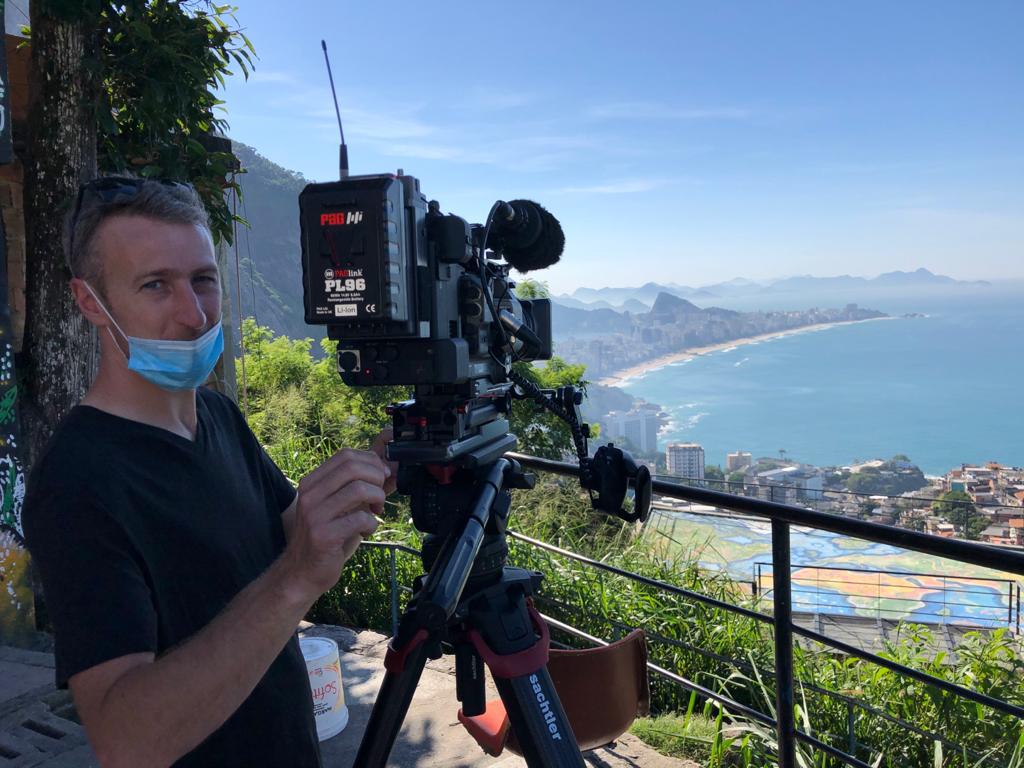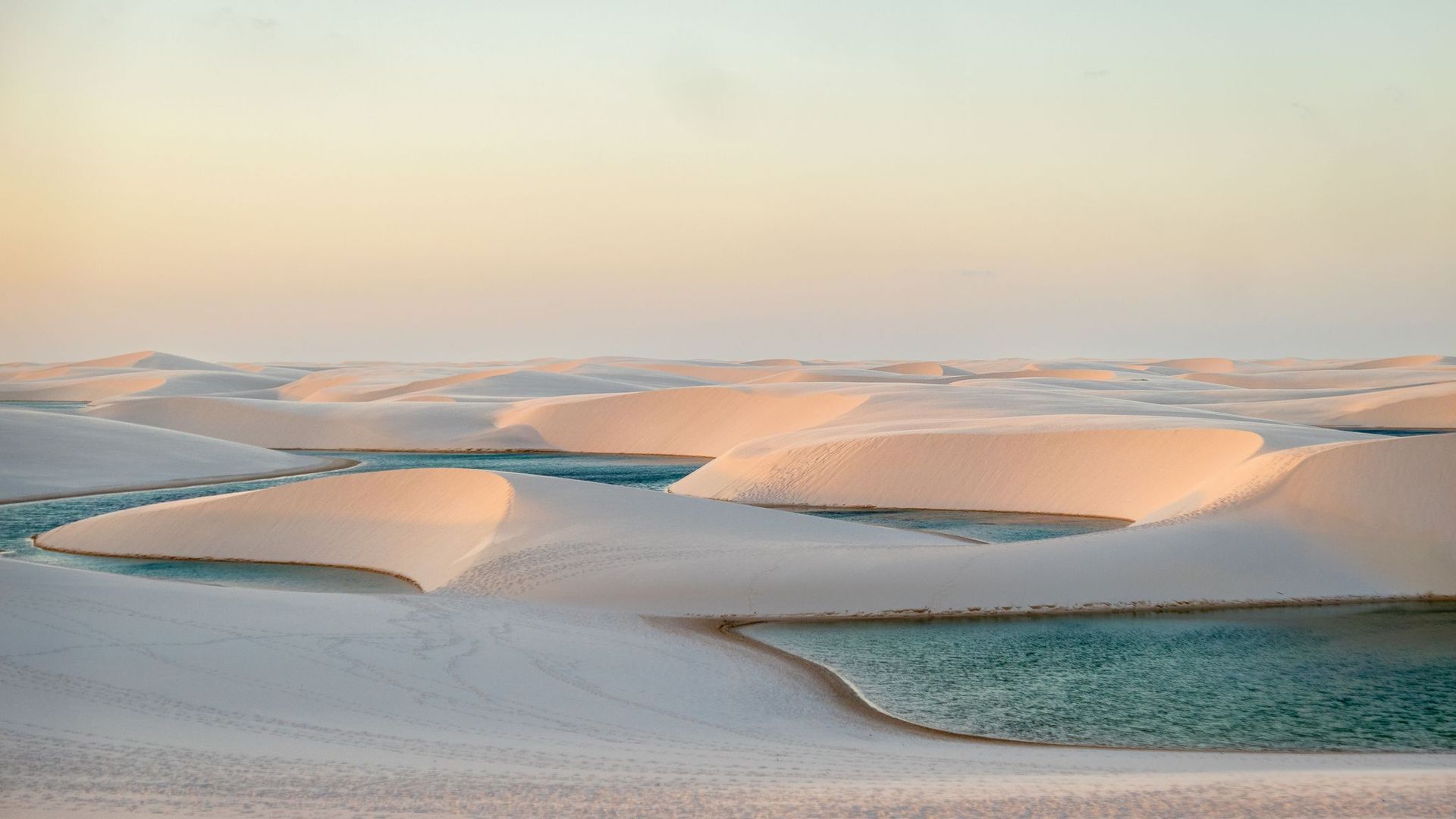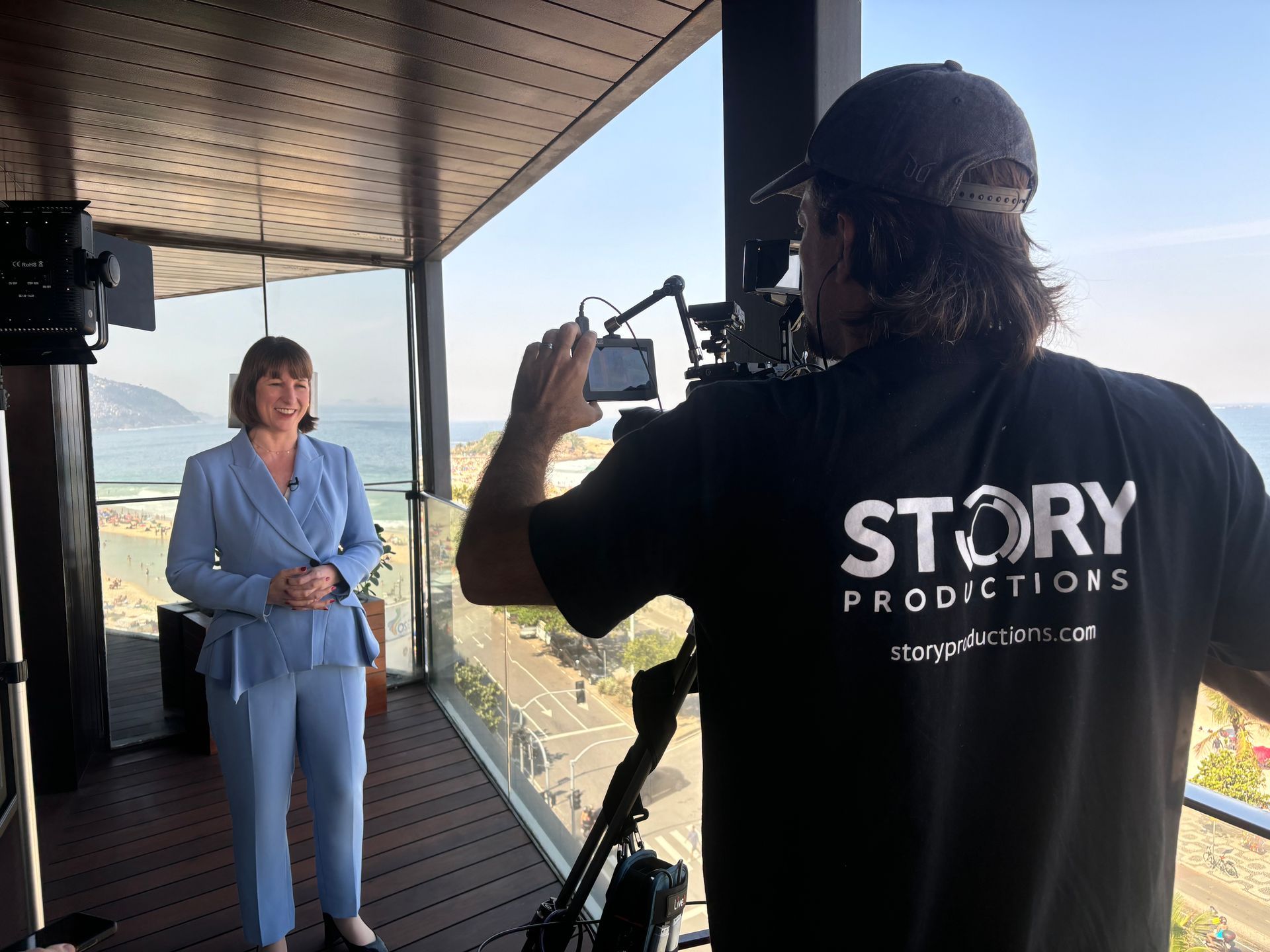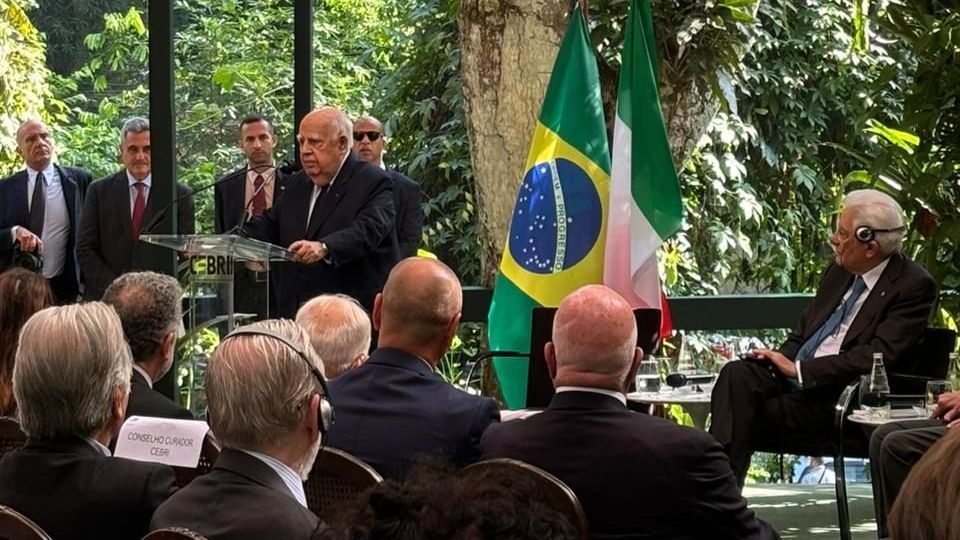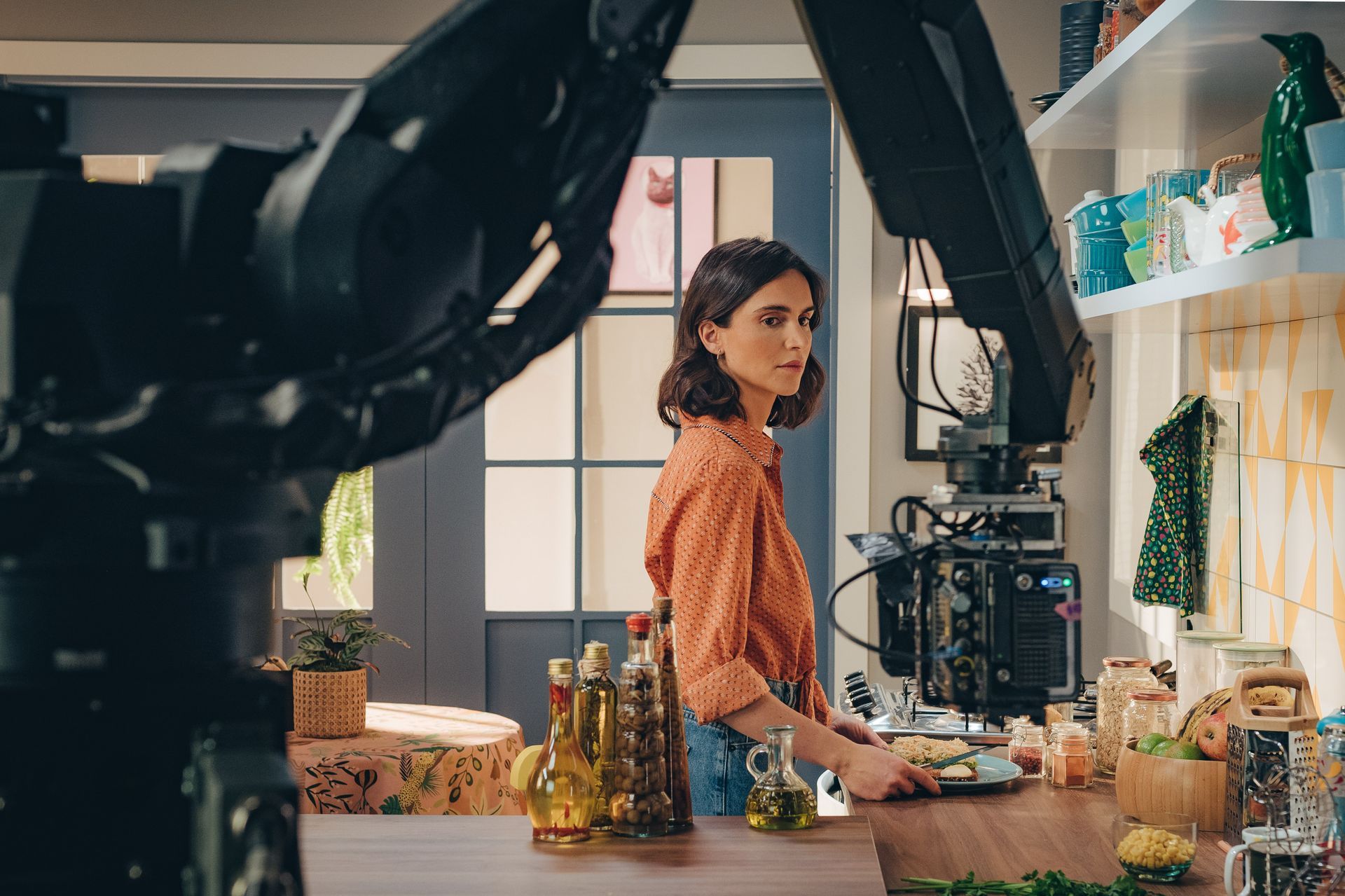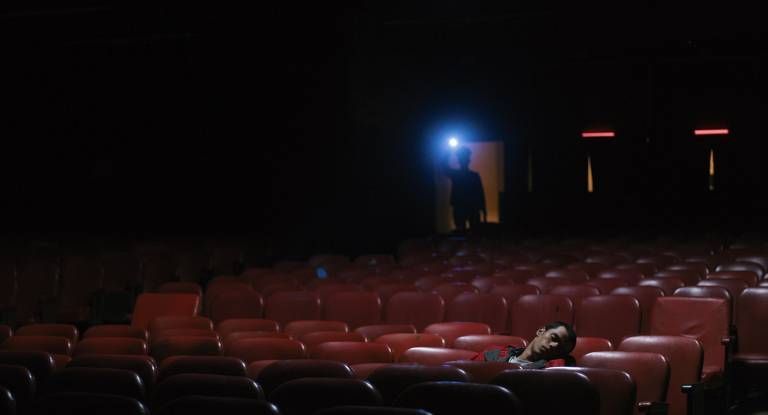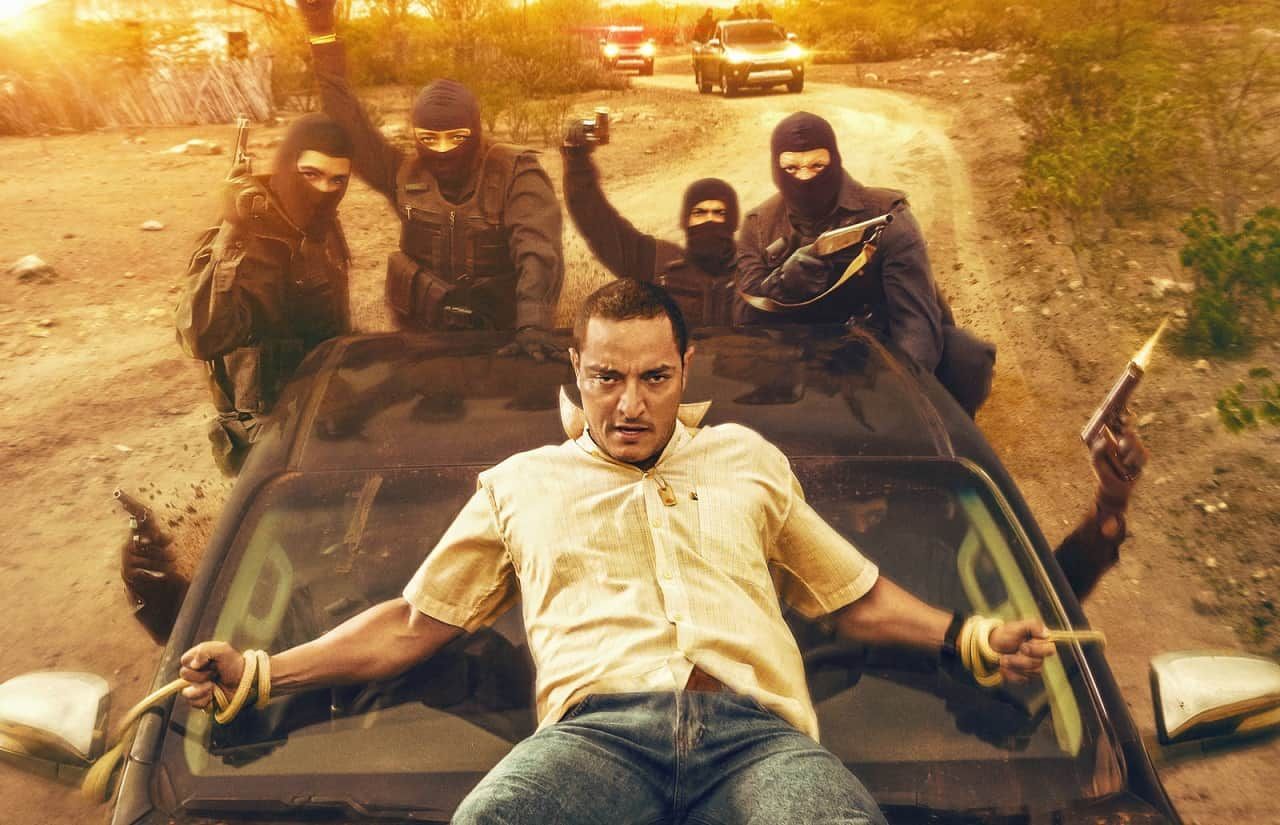Part 1: As the global audiovisual industry grapples with getting back to work again after the pandemic shut down nearly all projects except news and post-production work, ITV News cameraman Rob Turner spoke from the Copacabana Palace in Rio de Janeiro about technological advances in shooting, editing and sending images after covering covid-19 this week in Brazil.
"When everyone was locked down, there were a lot of Skype and Zoom interviews, a lot of material coming into the building without cameramen going out. So, as a cameraman, that’s slightly frustrating, that things are arriving on air without need of our skill sets. I think there was a time limit for that. It’s quite tiresome for the viewers to watch continuously. I suspect the Zoom-Skype culture will have a slight hangover. It has been made more acceptable, that interviews can be done in that way, with no other way. But fortunately, it’s come back, and the crews are out there and filming more and more and more…
"Going forward, it will mean there is less travel and people will stay in-country more. Not exclusively, but companies may have to reassess whether it’s worth sending their own crew. And if there’s local talent in the country that they want, then perhaps they’re using it. Obviously with the increasing availability of sending very good resolution image over IP, the need for people to be in-country to film documentaries and dramas I suspect will decrease slightly.
"When we’ve finished the edit, … you know, once upon a time it was satellite trucks and local TV stations to go and feed back to London … whereas now we can compress it and send it straight from the laptop into London, and it was on the air in the UK to probably 5 million viewers half an hour later."
Turner speaks on how populations are responding differently to Covid-19 in the hotspots that he has covered the virus’s devastation. After filming in the UK buildig up experience with the procedures of using personal protective equipment and shooting in hospital intensive care units, he and his team went to Bergamot in the north of Italy, which was considered ground zero for the virus in Europe at the time. The situation was already beginning to turn for the better when Brazil became the global hotspot for Covid-19, and off they went.
"Six hours after returning (to the UK) from Italy, I was back at Heathrow Airport on my way to São Paulo, via a nine-hour stopover in Amsterdam. Nothing was simple. None of the usual flight routes were available. We got here and did some filming around Sao Paulo communities, went to one of the cemeteries and produced strong report. Then we came to Rio and did a two-day shoot and a day’s edit. We broadcast a 4-minute news report the next day and were live from the roof of the hotel, with Copocabana in the background."
"I suspect the main differences are how the countries were locked down: Italy went through a very strict lockdown, and although we’ve seen lots of businesses that have been closed here, there’s still a lot of people on the streets moving around."
"The economic argument here is quite different in that people need to work to survive. I know there have been some financial provisions given to citizens here, but in Italy, mortgage payments have been put on hold, rent payments have been put on hold, people’s jobs have been protected by law. So, people were able to lockdown, stay at home, stay away from other people more easily, and still be able to survive financially."
"Another thing that has been strikingly different here is that there appears to be very little testing and tracing of confirmed cases. We filmed at, a testing center in Sao Paulo, and they weren’t actually performing tests. They were taking a temperature, taking the oxygen saturation levels, and making diagnosis on that. So, sadly I suspect that there’s still a long way for Brazil to go before they hit the top of the curve."
"But on the differences between Sao Paulo and Rio, the two places do seem to be approaching things slightly differently. The lockdown, being the most visible thing, is different. The roads were very busy in Sao Paulo, it seemed like a lot of life was carrying on as normal. We were able to eat, not necessarily restaurants, but eat in the hotel and get food while we were out filming."
"In Rio, there were fewer restaurants to get food. There were fewer people on the street, the beaches are deserted. It’s only really when you get to the favelas (shanty towns), where the economic pressures are greater on the community, that life is still going on more as normal. But it is quieter, in Rio. It seems to be more locked down, with more people staying at home here."
Read on to hear Rob handles dangerous locations and the techniques he employs to manage loaded subject matter while he shoots.
"I have done a lot of war zone coverage as well, and I think it's a similar situation. When you go to a war zone, the first few days you're very cautious. You're wearing your flack jacket and your helmet the whole time, and then by the time you've been
out there a few days, incident free, all of a sudden you're taking a shot and you realize you've left your helmet in the van, or you may not stop to think before you drive around a corner about what might be there, and you get a bit relaxed, and it is, that's part of the skill, is to try and stay vigilant, diligent, in your safety processes."
"And actually, I feel like Coronavirus is a very similar. You take the right precautions, you've had the training, and you're making sure, when you're going into a hospital, with a known virus there, all of a sudden you you suit up, and you do it properly, and your brain is fully focused on staying safe, but then you'll go out to film in the community and in favelas and, arguably, you're almost as at risk there, but you're walking around with a different level of protection."
"So, as a team, we're reminding each other all the time, hands being the main thing, not touching your face, staying clean, keeping a mask on, constantly assessing, we also are a large enough organisation, that they make sure we're looked after and have a security and safety person with us. The person in Brazil is knowledgeable on infectious diseases and protection,
so he's been reminding us, handing out the alcohol gel, making sure you've got your mask on, wiping down the equipment…"
"In the hospital as well, the first few times that I went in the UK, it was a very steep learning curve because none of us really, I mean there's been Ebola and other diseases that have been covered, but not necessarily domestically for us in the UK,
so the skill set probably wasn't there to protect yourself, so it was a learning curve on how to use the protective equipment, you know, how to get in and out of a suit…"
"Then the camera, there were a lot of decisions made on what was the best way to take a camera into these sort of, dirty areas. Do we put a rain jacket on it? Because you're in a mask and goggles or a visor, it's already difficult to film, and the rain
jacket means that the camera's not as accessible...so there are trade-offs."







